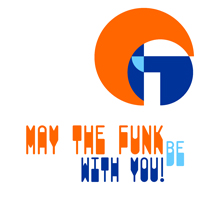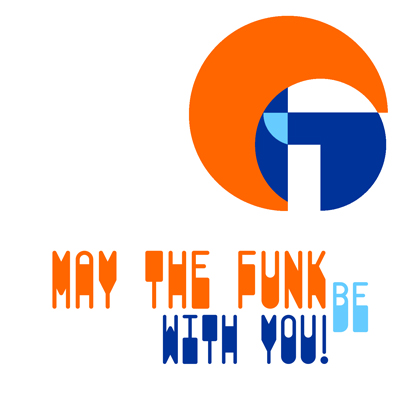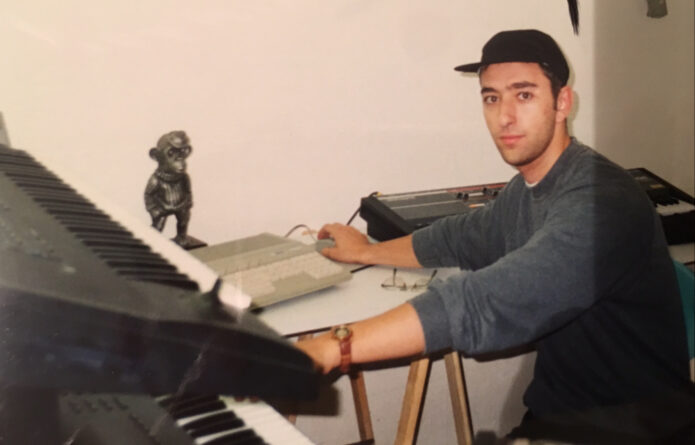INTRODUCTION:
The interview was born simply like this, like many others I’ve done over the years! The main ingredient is always music, eternal music! RECORDS THAT CAPTURED MY INTEREST.
DAX: I wanted to tell you that I’ve recently picked up several of your records and they are all beautiful and unique! I wanted to tell you! In particular “A Piece Of Your Own” and also the recent “Times”, but also the others…
DAN PIU: Oh man these are the type of personal messages I do love so much. Not just because of the compliments, but because of this decency that is scarcely found nowadays. I’m very glad that you like my music. Thank you very much for letting me know. It means a lot to me. I also wanted to send you a few old tracks from my moniker “Mutant Volt” …
DAX: I can say that you are a complete artist and I admire you a lot especially after I saw your equipment etc and then I understood that you are really a special person in the electronic scene and you deserve more recognition, but we know about the degradation and disgust related to clubbing/festivals etc .. “only appearance wins” .. Do you realize that even today (this year I turn 50 and I have a collection of >10000 vinyls) I suffer from the problem of competition, envy, etc. Young people are surprised if I still party so much .. if I were them, I would ask myself .. What I wanted to tell you is that it’s getting harder and harder, but the important thing is that we’re here! We fight, we defend ourselves and they can hardly tame us.. and we are freer than them.
DAN PIU: Your words reflect exactly what I have been thinking and feeling for a long time. I will be turning 53 years old this year. Although I don’t feel that old.. a certain wisdom comes with age.. and I find myself standing above certain things now. Sometimes, I do also wish I received more recognition, especially for my DJing. My vinyl collection is also well over 10k records, and gigs are very difficult to come by if you are not part of an agency. The younger DJs tend to prioritize themselves, whereas older guys like us could teach them so much in many ways. Most of the younger DJs have good sets, but they tend to be too same as others, everything feels so tense and sometimes some sounding almost artificial and unspontaneous.. but you know too good!
That’s why I completely understand you. yeah. Just share some beats if you have a minute.. always like to hear to new music. Thank you once again for your words. I started producing in 1991, thanks to my friend Flavio Cuva from Zurich, who produced the beautiful Anixus record on UMM. He also gave me the 303 back then, and he still remains my role model to this day. Great guy and humble. I assume you listen to house productions. I can also recommend you to check out my Zarenzeit and Passport Monikers. I’m sure you’ll find something interesting to listen to there.
The idea with the interview. means a lot to me .. you can start from the beginning by late 80ies/early 90ies since I was very influenced by italian deep house.
We are on the same wave.. Nu Groove is also my favorite label and the Burrell Brothers are my absolute fav artists.. wow I am gonna thru your webpage. this is exactly what I feel..
Also you got Joe Lewis that I released on my label deepArtSounds back then.. again, nice to meet you!
INTERVIEW:
DAX: Introduce yourself, where do you get your inspiration? Why and when did you start to dj and to produce music? Origin, now, future.
DAN PIU: I grew up in Northeast Zurich as the son of immigrants, and from an early age, I was interested in dance and electronic music. The gateway for me was my older sister, who was a clubber in Zurich’s subculture in the early to mid 80s and always brought home cool mix tapes from DJs. This eventually sparked my interest in DJing myself, and I started buying my first records with the pocket money I received from my parents. Later as a teenager, between 1987 and 1988, I was a Commodore 64 hacker and dealer, making quite a lot of money with pirated copies selling them in Europe. With that income, I bought my first turntables. Three years later, in 1991, I wanted to produce my own tracks, which I did using a Korg workstation. Then very shortly I added the Roland Juno 106, the TR-808, the TR-303 that I got from Flavio Cuva (UMM Anixous) and a Roland sampler (S-50), which allowed me to sample maximum 14 seconds in 12-bit mode.
DAX: What do you look for in a beat?
DAN PIU: I always try that the single elements are in harmony with each other and fit well. I always strive for warmth in the mix. I rarely use processors or compessors in my mix. Instead, I try to achieve warmth solely with my instruments and with my playing style. I make sure that my songs come across as a kind of unity. The sound of the bass and its essence must be in perfect harmony with the rest of the song. For example, I experiment with the synthesizer’s controls and tweak the decay and release until I feel the bass fits and blends with the other elements perfectly. In my opinion I find using too much processors to create warmth, to be an artificial and unnatural way of doing so. Also they can kill the essence of the song. But again, that’s just my humble opinion and experience.
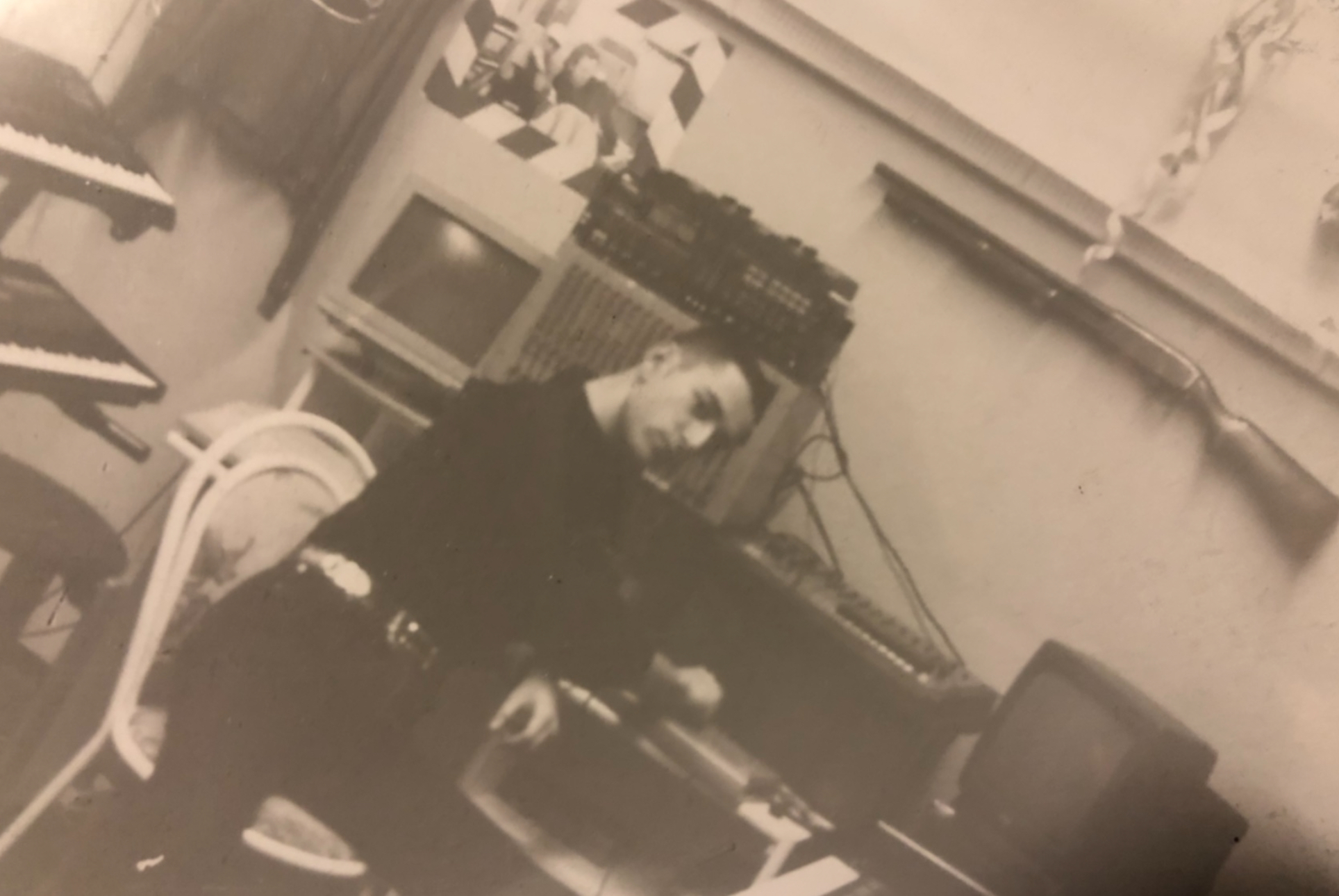
1994 Studio 3
DAX: Why one of your first album titled “living in fear” (2016) it would seem more like a title for these current times!?
DAN PIU: You are absolutely right, this title would be even more fitting in today’s times. Actually, this title comes from a song I produced in 1997 and released on Moto Music two years later. I produced this track while reading the book ‘Geheimgesellschaften’ (Secret Societies) by Jan van Helsing, which has since been heavily censored. But it already predicted a lot and much of it did indeed come to pass, unfortunately. From then on, my perspective definitely changed, and my worldview shifted as a truth seeker. Honestly, looking back what happened in 2001 or in 2020 didn’t really surprise me. People can dismiss me now as a crazy conspiracy theorist, but I def don‘t care. My critical attitude towards the whole thing has saved me from many mistakes and wrong decisions in this entire big world clown show.
DAX: Where do you continually get your inspiration?
DAN PIU: My inspiration definitely doesn’t come from being outdoors and being connected with the nature and city or listening to old Charles Mingus jazz songs. Apart from this irony, for me, it’s quite simple: I just listen to electronic music, for example, a DJ mix, and it quickly ignites the urge in me to get behind the keyboard. Furthermore, I live in my studio, and I always have the machines in sight, which metaphorically encourage me to use them. That happens very quickly. I am also constantly driven to produce my own personal perfect track, which I will probably never achieve, but it feels like a surfer in the ocean waiting his whole life for the perfect wave.
DAX: Which artists are you currently listening to? Djs?
DAN PIU: Since electronic music has become very timeless and many young producers imitate or reinterpret old music, I don’t specifically follow an artist or producer anymore. Besides, there are so many good ones out there that could be mentioned. However, I always enjoy listening and studying to old music by Toyin Agbetu, the Burrell Brothers or Joe Turri, as well as people like William Orbit or The Future Sound Of London just to mention a few. They were all ahead of their time. As mentioned earlier, I also regularly listen to DJ mix podcasts, including those of my friends Antonio and Alfonso from H.B.E.M., Daniel Edenburg, Roger Versey, or my wife Natalia. I practically listen to DJ Estimulo weekly. I find he is one of the best storytellers sonicwise.
How would you describe your sound? Samples or analog equip. ?! New software, plugins, laptop and new mix technology or traditional?
DAN PIU: Over all these years, my music has only changed marginally because I still follow the same workflow. My DAW is Logic, which is essentially the successor software to Notator Creator on the Atari ST that I used from 1991 onwards.
Aside from the DAW, I’ve only changed the mixing console. Of course, new instruments have also been added over all these years, but the workflow remained the same. I don’t use plugins or software tools. I prefer to record everything live using Hardware, MIDI and Audio recording. Afterwards, I cut and arrange and produce my tracks on the DAW. Musically, I tend to favor a Minor key that I often combine with an SUS key, as it best represents my somewhat melancholic style. I usually start with F or C, but I also enjoy playing the black keys which is quite fun and special, especially when producing experimental music. Although I use samples in my drum programming or for artistic effects, I use them less for musical elements. I want to create sounds and write my own melodies, not use pre-made samples at all, but there is no rule in my music. Everything can be used as far it fits the song. I always mix the songs during composing and writing, which saves me a lot of time afterwards.
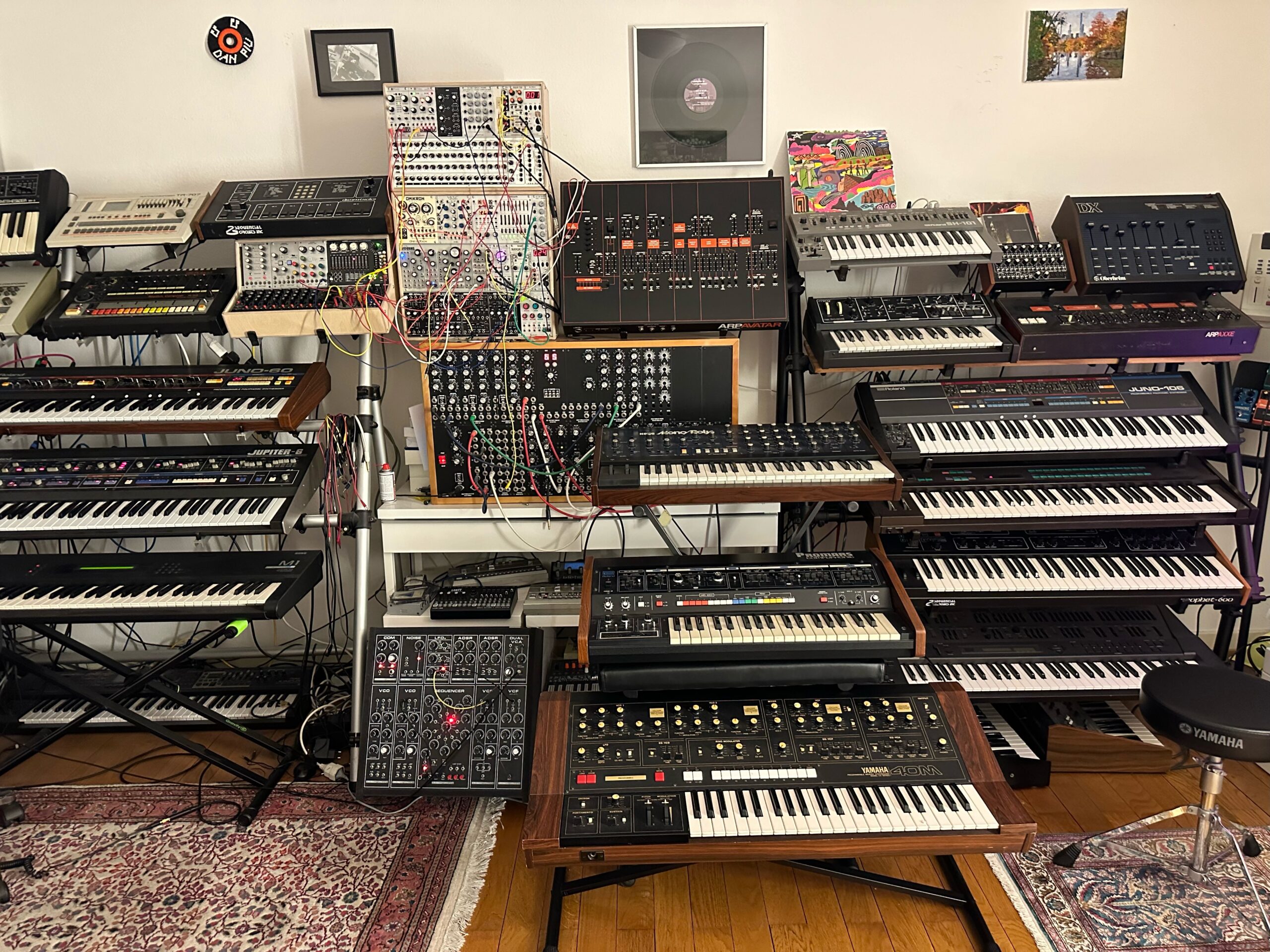
2024 my current Studio 5
DAX: Favorite drums, synthesizers and sequencer.
DAN PIU: Depends on my moniker and the genre I produce. However, for spacey and trancey sounds I really like the old Arp Axxe Synth and the Waldorf Microwave XT too but also the filter of the Jupiter 6 is topnotch as well as my whole modular systems which also includes Eurorack modules. When producing more bass sound related tracks like House or bleepy stuff, I really like the Moog Roque as for the bass sound. It fits so extremely well in the mix. But I do also like the FM sounds from the old Yamaha keyboards such as the DX7 or the TX81Z. Over all the years I created a pad sound on the Juno 60 which is so insanely beautiful that I many times used it.
For sure, I do also love the typical presets sounds of the old digital Synthesizers like the M1. I did also discover a new love for the Yamaha CS40, which sounds so incredible sick! As for drum machines, nothing can beat the old drum machines by Roland, especially the TR-909. It‘s just too perfect sounding to avoid it. Sequencer-wise I lately use the Doepfer Darktime which I really can recommend.
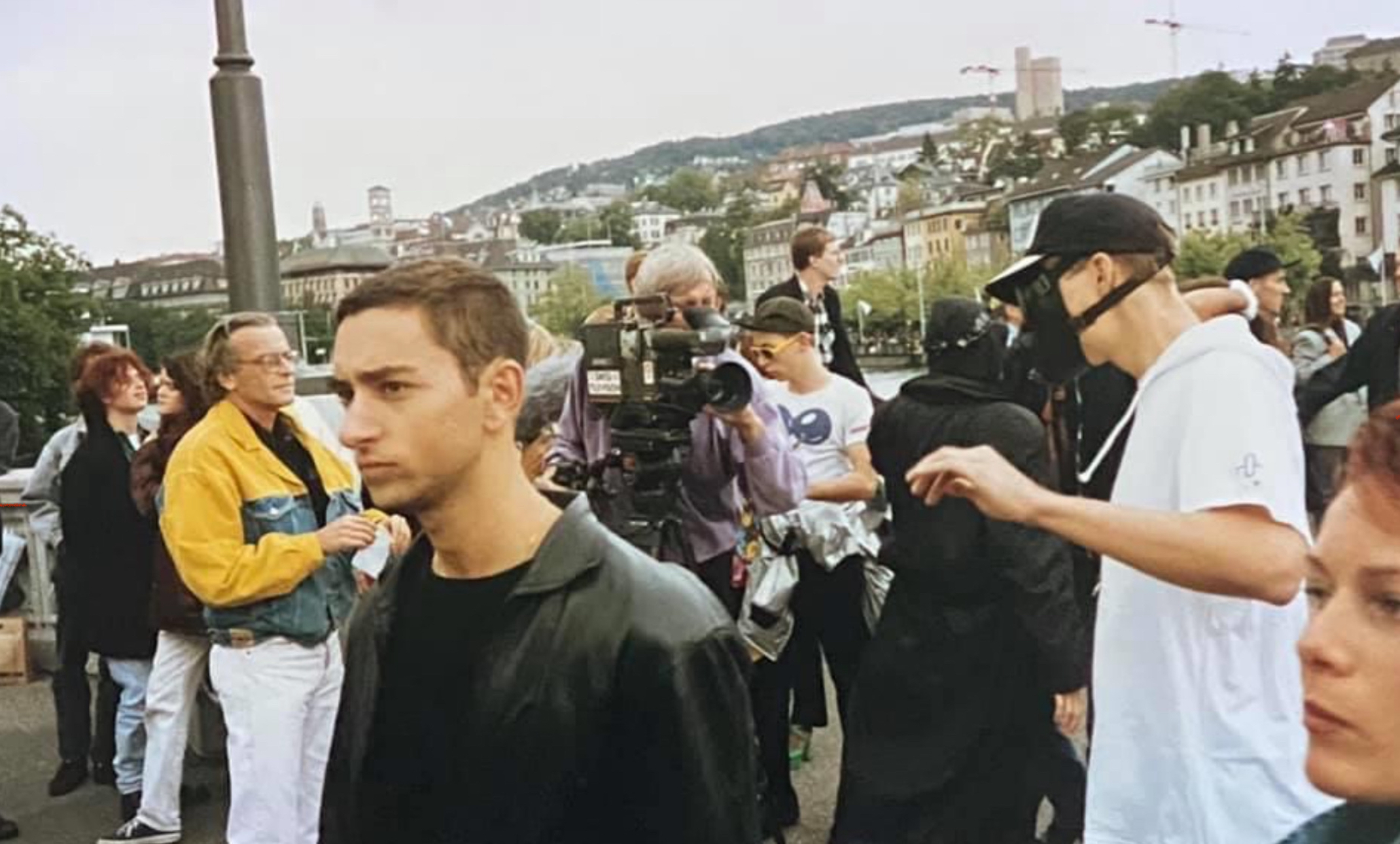
1st Streetparade ever in 1992
DAX: Tell us about your town/city and the music scene. Have you been to street parade?
DAN PIU: The Street Parade may be the city’s flagship event, but there’s much more to report beyond that. Zurich still boasts the highest density of clubs in Europe, considering the size of the city. I could easily list 20 clubs fully dedicated to electronic music, including internationally renowned venues like Zukunft, Friedas Büxe, Supermarket or Hive. We also have many producers here in the town, some are very talented, and there are numerous support programs for them backed by the city. There’s also a thriving vinyl culture here, where you can dig for old records. But there’s also a new, young scene emerging around Andreas Ramos and his store Sihl Records, which is very creative and contemporary. As for me, I had some residencies in the 90s. Nowadays, however, it’s very difficult to get a spot anywhere if you’re not part of a community. Zurich has always been a stage for foreign DJs, which naturally makes it even harder to land good gigs. But I can’t complain in recent years, as I’ve been able to DJ here and there. As for the Street Parade, I’ve been there since day one in 1992, and we even had our own truck two years later. But these days, it’s become a bit too big and flashy for my taste.
DAX: Your best place for music .. Around the world?!
DAN PIU: There are countless amazing places to mention.. London, Tokyo, New York, etc. but again, my favorite remains my hometown, Zurich. Here, we have an extensive history and heritage in every damn genre of electronic music like probably no other place. Just to make an example, Zurich was banging with the finest Italian deep house of the early 90s in countless raves, clubs and underground venues back then, while other cities took not even note of this beautiful music coming from Italy. That deserves huge respect for my city.
Unfortunately, there’s also a downside to the coin. What I could criticize about my city is that over all these years, we never managed to create a recognizable “Sound of Zurich.”
We had all the necessary ingredients.. talent, studios, and gear. We missed the opportunity to build and promote collaborations or support one another. Many were too selfish or afraid that someone else might take their place or whatever. Me and my partner Robert P. always operated in the very underground scene, but even there, we quickly realized that it wasn’t easy to convince and enlist others for your projects and ideas. Decades later, it’s somewhat disheartening and sad because Zurich had the potential to leave a significant mark in music history.
Visions of the future. Enlighten us on your dream project?
DAN PIU: In terms of future projects, I don’t exactly have visions. I leave that to others who have a clearer view of the future, like Alexander Einetter, the label owner of Childhood Intelligence. He’s truly a visionary with plenty of ideas, and he often involves me in them.
However, one day I’d prefer to disconnect entirely from the outside world and go back to the core, and rediscover that nice innocence, naivety, and childlike curiosity like I used to have when I started to make music, and produce entirely fresh music, free from any external influences. No pressure, no social media, no SoundCloud, no guidelines. This is the best. Just me and the machine. That’s my personal dream.
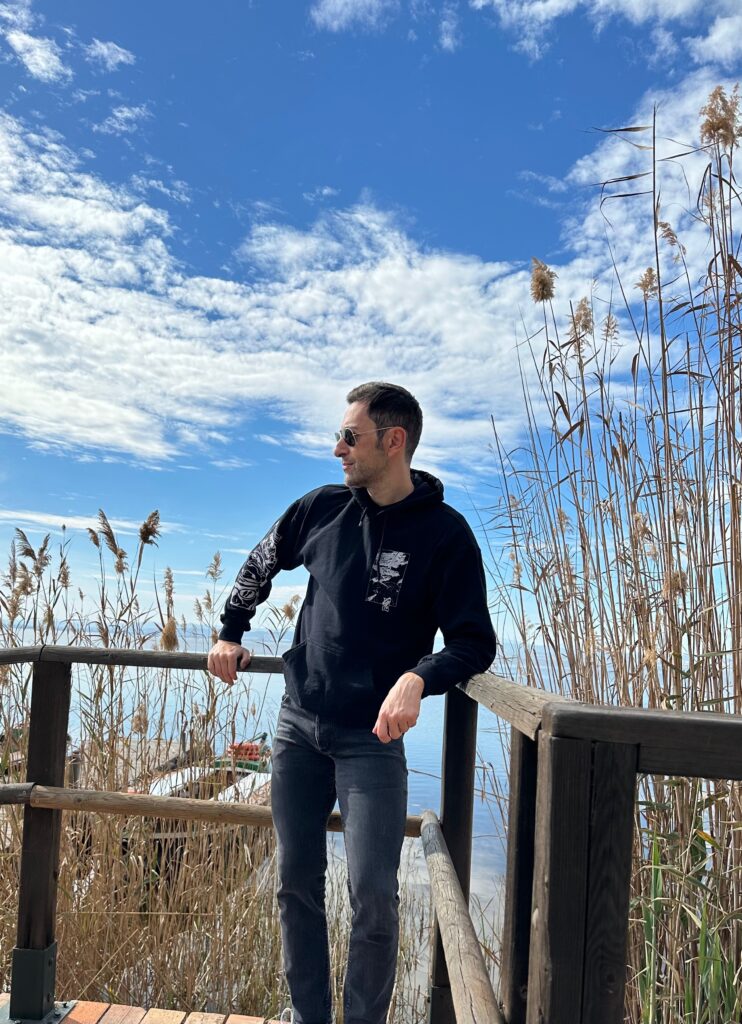
Artist Picture (March 2024 in Valencia)
